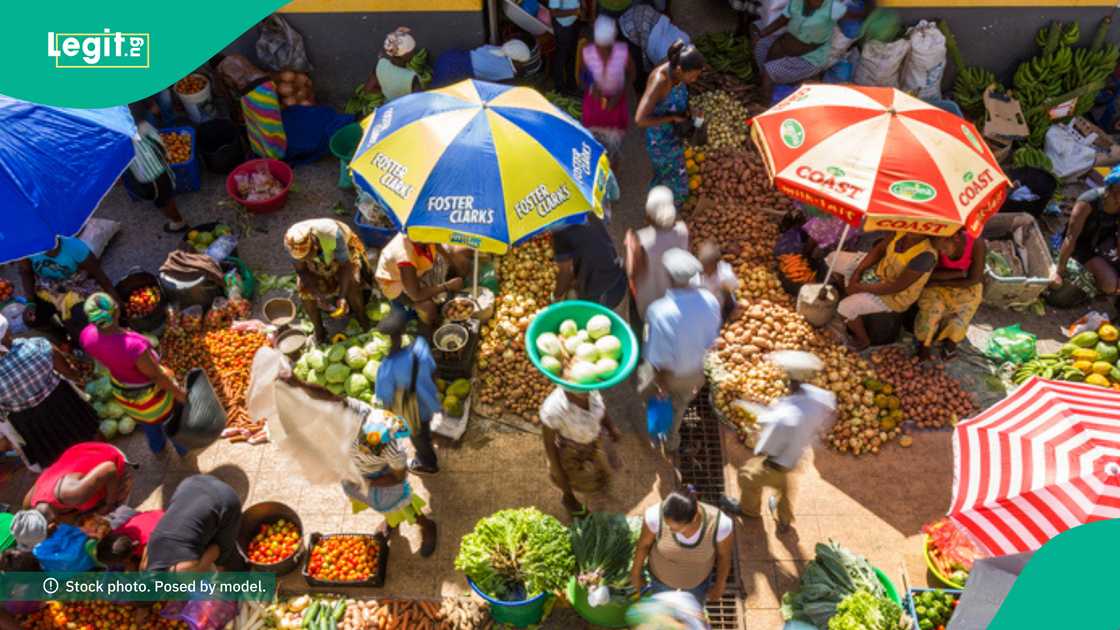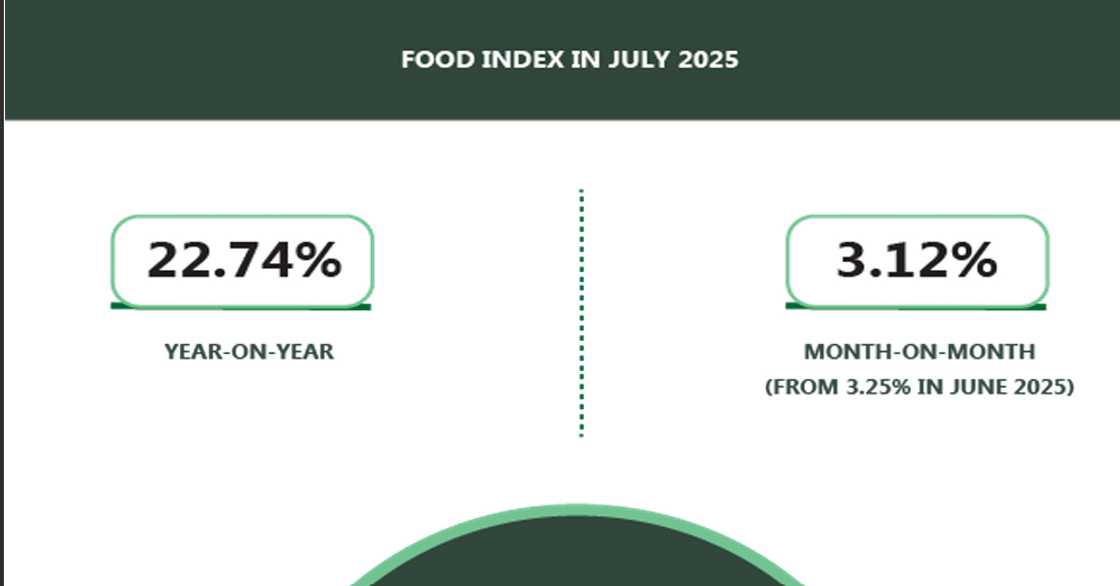Good News as Prices for Beans, Garri, Rice, Yam, and Other Food Items Drop
- The price of food items has dropped due to the harvest season, bringing relief to Nigerian households grappling with the high cost of living
- New data show that staples such as garri, rice, beans, and tomatoes have recorded notable price declines
- Figures from the National Bureau of Statistics also provide insight into changes in food prices across the country
Legit.ng journalist Dave Ibemere has over a decade of experience in business journalism, with in-depth knowledge of the Nigerian economy, stocks, and general market trends.
The prices of key food commodities have dropped, driven largely by the harvest season and better supply flows into urban centres.
This is according to a commodity price update released by Financial Derivatives Company Limited.

Source: Getty Images
Food items drop
According to the report, various staples such as garri, rice, beans, and palm oil are now on a downward price trend.
The data shows that the price of a 50kg bag of yellow garri fell by 3.03% to N32,000 from N33,000 in July.
While long grain rice (50kg) dropped by 2.29% to N85,000, down from N87,000.
A bag of flour (50kg) dropped 3.08% to N63,000, while the popular Oloyin variety of beans (50kg) eased by 2.44% to N80,000.
Also, Palm oil (5 litres) recorded a 4.17% fall, selling for N11,500 compared to N12,000 last month.
Some commodities recorded larger price drops.
The price of a basket of tomatoes plummeted by 31.82% to N75,000 from N110,000, as fresh harvests flooded the markets.
A big bag of pepper slipped 6.25% to N75,000, while onions fell by 4.54% to N105,000.
New yam (three tubers) price also slashed by 18% to N13,500 from N16,500.
Snapshot of the price changes
- Garri (50kg): N32,000 (-3.03%)
- Rice (50kg): N85,000 (-2.29%)
- Flour (50kg): N63,000 (-3.08%)
- Beans (50kg): N80,000 (-2.44%)
- Palm oil (5L): N11,500 (-4.17%)
- Tomatoes (basket): N75,000 (-31.82%)
- Pepper (big bag): N75,000 (-6.25%)
- Onions (bag): N105,000 (-4.54%)
- New yam (3 tubers): N13,500 (-18%)
Food inflation declines in July
The National Bureau of statitics has released its inflation report and revealed that food inflation rate in July 2025 stood at 22.74% on a year-on-year basis, representing a decrease of 16.79 percentage points compared to July 2024 (39.53%).

Source: Facebook
It noted that the significant drop in the annual food inflation figure is largely due to a change in the base year.
The bureau stated:
"On a month-on-month basis, the food inflation rate in July 2025 was 3.12%, down by 0.14 percentage points from June 2025 (3.25%).
"This decrease can be attributed to a slowdown in the average prices of items such as vegetable oil, white beans, local rice, maize flour, guinea corn (sorghum), wheat flour, and millet (whole grain), among others.
The average annual food inflation rate for the twelve months ending July 2025 was 26.97%, which is 9.39 percentage points lower than the average annual rate recorded in July 2024 (36.36%)."
Egg price crashes, traders share new cost for a crate
Earlier, Legit.ng also reported that the price of eggs in the market has dropped due to the decline in the prices of maize and soybeans.
President of the Poultry Association of Nigeria, Sunday Ezeobiora, who confirmed the price drop, said a metric ton now sells for N450,000 compared to N600,000 earlier this year.
Olalekan Oluwafemi, Director at Popoola Farm Project in Lagos, said feed costs remained the biggest factor in poultry pricing.
Source: Legit.ng




